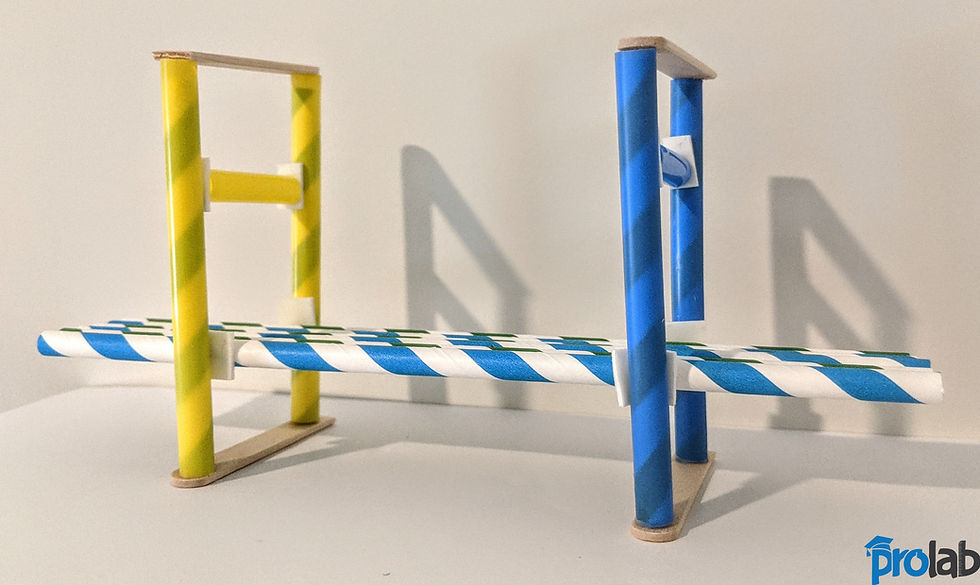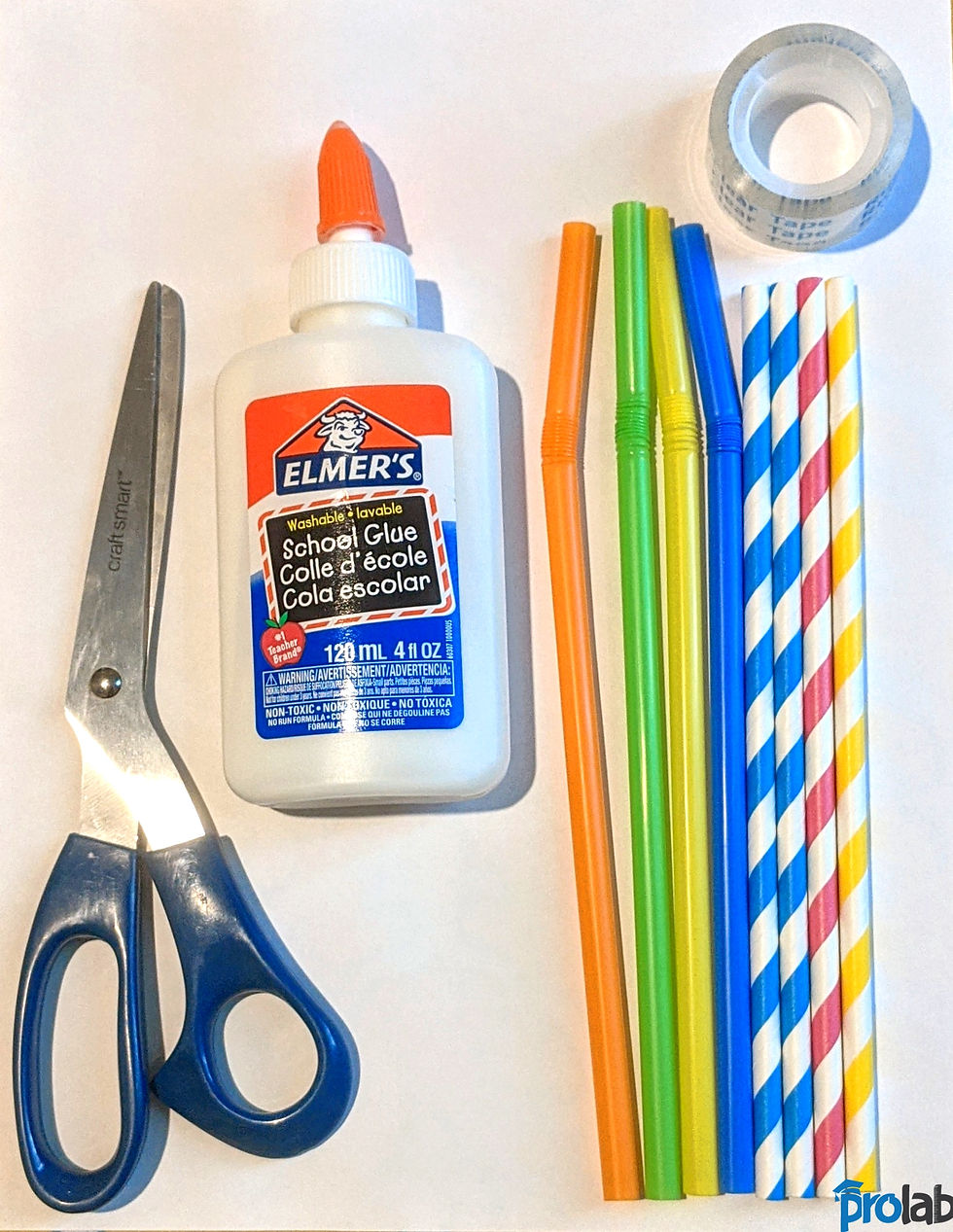Make a bridge using straws
- NerdZone
- May 8, 2020
- 2 min read
Updated: Jun 3, 2020
“Scientists investigate that which already is; Engineers create that which has never been!”
Why not take our first little footsteps towards the future of our mini-engineers. This footstep will be to design and create a model of a simple load-bearing bridge in order to understand different geometric shapes and determine how shapes affect the strength of the object made.

Introduction:
To design bridges, engineers perform a careful analysis of bridge geometries and the anticipated applied loads so that they can determine the exact place of the reaction forces. Engineers also consider the most effective materials to achieve a balance of tension and compression. Engineers determine the bridge type, design, and materials; analyze site conditions, geologic and environmental factors; and establish detailed design plans and budget/funding schedules.
Types of Bridges: Arch, Beam, Suspended, Truss, Cable Stay

Requirements:
Plastic Drinking Straws
Double-sided tape or glue
Popsicle sticks
Scissors
Steps:
Take 4 equals length straws, place them horizontally and glue them together
Take 2 equal length straws and cut them from the center
Take a popsicle stick horizontally and attach one half of the straw at one end and the other half on the other end
Take another popsicle stick and do the same at the bottom
Repeat step 2 & 3, with another set of popsicle sticks
Stick the previously made bunch of straws in the middle of the two horizontal supports made earlier using a double-sided tape
Cut ¼ size of a straw and stick it horizontally at the upper side of the two vertical supports
Try different shapes in constructing your bridge using straws and understand the fundamentals
Learning Opportunity:
The three most popular bridge designs are: beam, arch, and suspension
Beam Bridges: Beam bridges are simple in design and not very expensive to build. These flat bridges connect one road to another. This bridge is often used when one road crosses on top of another road. They are often short, but longer beam bridges can be made from many small pieces connected together. Beam bridges are also used where the ground underneath is not strong enough for a road.
Arch Bridges: Arch bridges have a curved shape just like a rainbow to move the downward force across the entire bridge rather than pushing down on one spot. Besides being very strong, arch bridges allow for tall objects like trucks, trains, and boats to travel underneath.
Suspension Bridges: Suspension bridges hang in mid-air by lightweight cables high over the water or ground. Modern-day suspension bridges can cover a distance of 2,000-7,000 feet, the best option for long distances; however, they are expensive to build.
Also, explore the types of these famous bridges:
Golden Gate, San Francisco, California
Brooklyn Bridge, New York
Chapel Bridge, Lucerne, Switzerland
Tower Bridge, London, UK
Bonus: Try to recreate any of the above bridges using straws.

Коментари